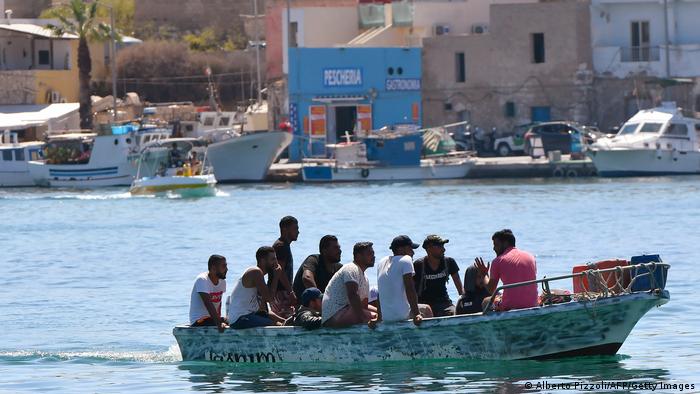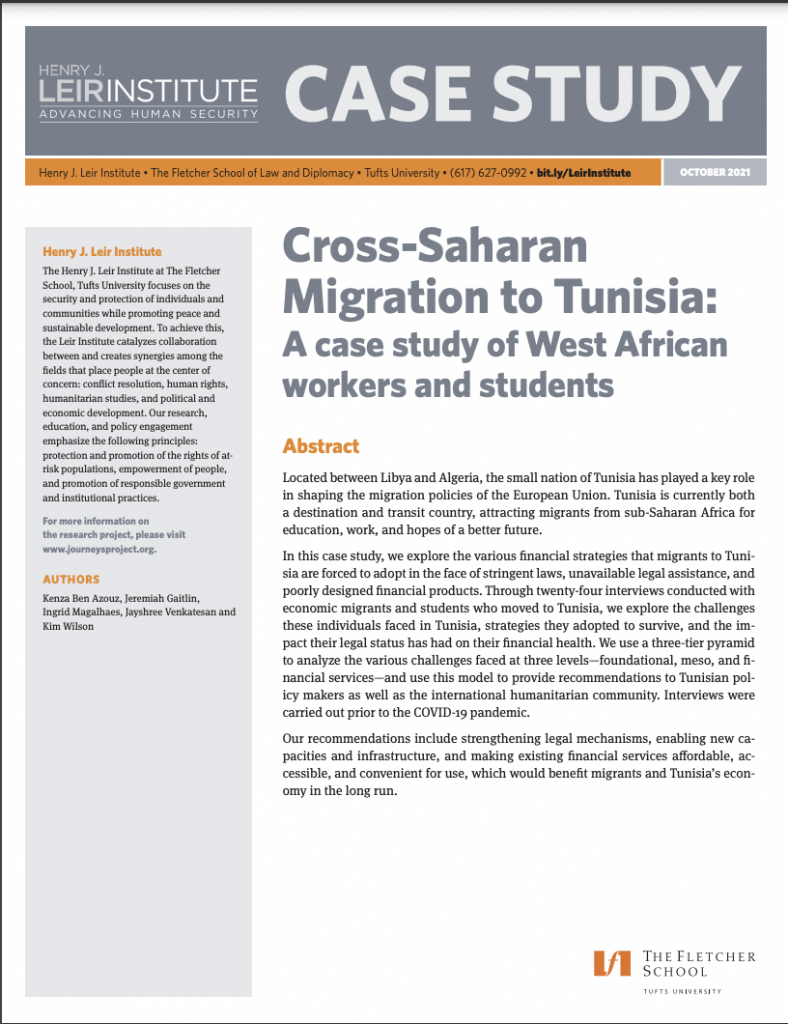
Cross-Saharan Migration to Tunisia: A case study of West African workers and students
By Kenza Ben Azouz, Jeremiah Gaitlin, Ingrid Magalhaes, Jayshree Venkatesan, and Kim Wilson
Located between Libya and Algeria, the small nation of Tunisia has played a key role in shaping the migration policies of the European Union. Tunisia is currently both a destination and transit country, attracting migrants from sub-Saharan Africa for education, work, and hopes of a better future.
In this case study, we explore the various financial strategies that migrants to Tunisia are forced to adopt in the face of stringent laws, unavailable legal assistance, and poorly designed financial products. Through twenty-four interviews conducted with economic migrants and students who moved to Tunisia, we explore the challenges these individuals faced in Tunisia, strategies they adopted to survive, and the impact their legal status has had on their financial health. We use a three-tier pyramid to analyze the various challenges faced at three levels—foundational, meso, and financial services—and use this model to provide recommendations to Tunisian policy makers as well as the international humanitarian community. Interviews were carried out prior to the COVID-19 pandemic.
Our recommendations include strengthening legal mechanisms, enabling new capacities and infrastructure, and making existing financial services affordable, accessible, and convenient for use, which would benefit migrants and Tunisia’s economy in the long run.
Click the button below to download the case study report.

For questions, please reach out to Professor Kimberley Wilson at Kimberley.Wilson@tufts.edu.
